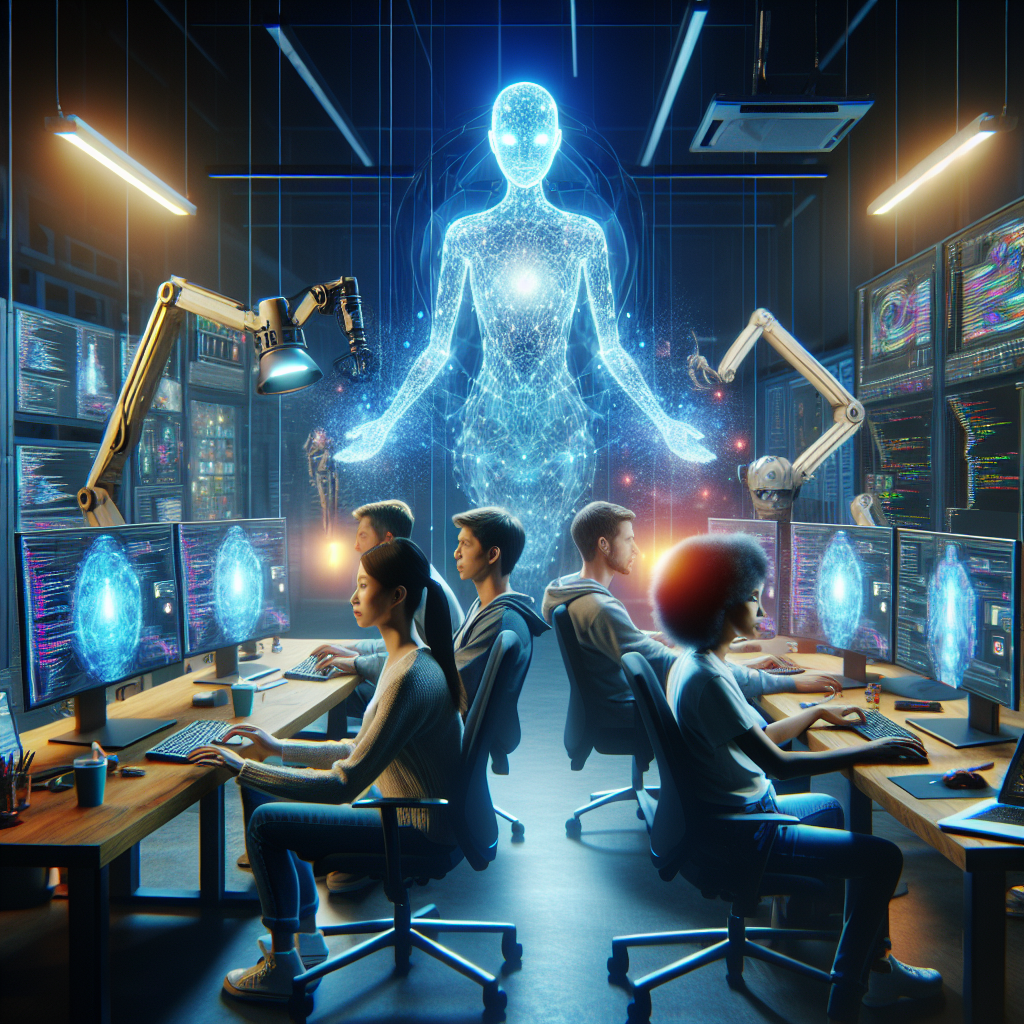The Rise of AI in Game Development: A New Era of Efficiency and Creativity
The gaming industry is undergoing a transformative shift as artificial intelligence (AI) becomes a standard tool in the developer’s arsenal. According to a recent survey conducted by Google Cloud and The Harris Poll, a staggering 87% of game developers are now leveraging AI agents in their workflows. This indicates not only the rapid adoption of advanced technologies in game creation but also a fundamental evolution in how digital worlds are imagined, built, and refined.
Understanding the Role of AI Agents in Game Development
AI agents are not just buzzwords in a rapidly innovating industry—they’re practical tools that are revolutionizing every stage of game production. These agents utilize machine learning algorithms to take over repetitive tasks, generate content, optimize code, test gameplay, and even assist in design decisions. The impact is measurable and significant.
Key Benefits AI Brings to Development Teams
Developers are increasingly relying on AI for a variety of reasons:
- Improved Efficiency: AI automates time-consuming tasks, allowing developers to focus on more creative aspects of game design and storytelling.
- Content Generation: Whether it’s creating realistic textures, crafting dialogue for NPCs, or developing storylines, AI can help produce high-quality content in less time.
- Game Testing: AI agents can simulate thousands of gameplay scenarios, identifying bugs and balance issues faster than manual testing ever could.
- Dynamic World Building: Procedural content generation powered by AI empowers studios to create expansive, ever-changing environments more efficiently.
What the Survey Reveals About Industry Attitudes
The Google Cloud and Harris Poll survey highlights more than just adoption statistics—it offers valuable insights into the mindset of today’s game developers:
- 61% believe AI will be crucial to future success in game development.
- 52% say AI helps reduce burnout by automating tedious tasks and accelerating production timelines.
- 78% agree that AI enhances creativity rather than replacing human input, suggesting that AI is viewed mainly as an augmentation tool rather than a replacement.
Studios of All Sizes Feel the Impact
While AAA studios were the early adopters, the survey shows that indie developers and mid-sized studios are increasingly integrating AI tools into their workflows. This democratization of technology is leveling the playing field, enabling smaller teams to produce high-quality games at faster rates and competitive costs.
The Growing Toolbox: Popular AI Applications in Use
Developers are harnessing a wide range of AI-powered tools. Some of the most common applications include:
- Chatbots and NPC AI: Enhancing dialogue interaction and in-game intelligence with dynamic, responsive characters.
- Narrative Assistance: Using natural language generation to craft immersive storytelling experiences.
- Procedural Generation: Automating the creation of maps, items, and quests that vary every playthrough.
- Asset Creation: Leveraging AI to generate art, sound effects, and animations at scale.
Challenges and Ethical Considerations
Despite its advantages, the widespread use of AI also raises important concerns:
- Originality and Creativity: There is ongoing debate about the fine line between inspiration and imitation when AI is involved in content creation.
- Job Security: With automation taking over certain tasks, some developers worry about redundancy, even though most report that AI helps rather than hinders their roles.
- Intellectual Property: Questions about who owns AI-generated content are becoming more significant and legally complex.
A Need for Clear Guidelines
As more studios embrace AI, transparency and ethics will become key pillars. Many industry figures are calling for clear policies on AI usage, as well as deeper discussions on fair credit for human vs. AI contributions and thoughtful regulation to balance innovation with responsibility.
The Road Ahead: AI as a Collaborative Partner
The future of game development lies not in replacing creative minds with machines but in collaborating with AI to unlock new levels of performance and imagination. As tools improve and developers grow more comfortable with AI’s potential, we can expect more groundbreaking games that push the boundaries of interactivity, realism, and storytelling.
What This Means for Players
Gamers stand to benefit tremendously from this AI revolution. Future titles will be more immersive, responsive, and personalized, offering experiences that dynamically adjust to user preferences and gameplay styles. The fusion of human creativity and machine intelligence promises a golden age for game innovation.
Final Thoughts
The revelation that 87% of game developers now utilize AI agents underscores a profound evolution within the gaming industry. This isn’t just a trend—it’s a paradigm shift. As AI continues to streamline development, enhance creativity, and empower small teams to deliver AAA experiences, it’s evident that artificial intelligence is not the end of the game developer—it’s their most powerful ally.
Whether you’re a developer seeking efficiency or a gamer hungry for better experiences, the integration of AI in gaming is shaping a bold, dynamic future that is only just beginning.



Leave a Reply